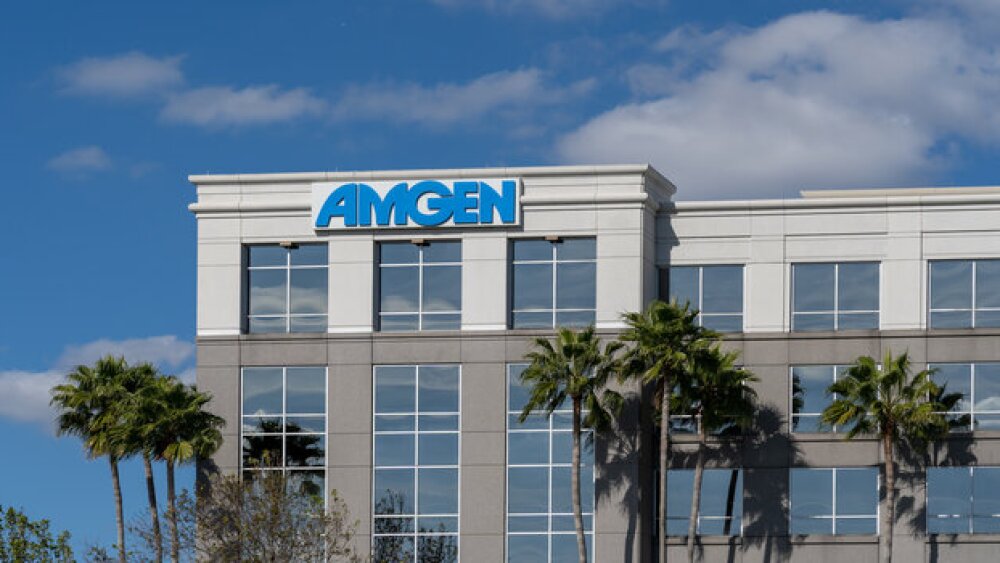Results of Phase 1 Study Presented in Presidents Oral Session Presentation at the American Diabetes Association 77th Scientific Sessions
CAMARILLO, Calif.--(BUSINESS WIRE)--REMD Biotherapeutics, Inc. (“REMD Bio”), together with its subsidiary, Beijing-based Cosci-REMD Biotherapeutics (“Cosci-REMD Bio”), today announced data from a Phase 1 clinical study of REMD-477 in patients with type 1 diabetes were presented during the Presidents Oral Session at the American Diabetes Association’s 77th Scientific Sessions (ADA 2017) in San Diego. The results showed that a single dose of REMD-477 substantially reduced daily insulin requirements and glucose levels without increasing hypoglycemia (low blood glucose levels) in patients.
The randomized, double-blind, placebo-controlled study enrolled 21 patients (8 men, 13 women) with type 1 diabetes. Patients were admitted for a five-day, in-patient observation period, during which their glucose levels were maintained by following a dietary plan and through continuous intravenous (IV) insulin infusion. All patients’ glucose levels were monitored by continuous glucose monitoring (CGM) for approximately two weeks prior to and eight weeks after the in-patient part of the study (‘in-patient period’). Daily insulin use and glucose levels of patients were measured on day one of the in-patient period. On the second day of the in-patient period, half of the patients on the study (10 patients) received a single 70 milligram (mg) subcutaneous injection of REMD-477, while the other half (11 patients) received a subcutaneous injection of placebo. Daily insulin use and glucose levels were checked again on days three and four of the in-patient period and after release from the in-patient setting.
Results of a comparison of daily insulin use and glucose levels demonstrated that a single dose of REMD-477 decreased daily insulin use by up to 26 percent (12 units) during the in-patient period compared to placebo. Average daily glucose concentrations decreased by 20 to 31 mg/dL without increasing hypoglycemia in the first three weeks after release from the in-patient setting for patients on the REMD-477 arm of the study.
Glucagon, a hormone that increases blood sugar, works in concert with insulin to maintain glucose levels in humans. Elevated glucagon levels have been found in every form of diabetes. REMD-477 is a fully human antibody that specifically binds to the glucagon receptor and blocks the action of glucagon.
Jeremy H. Pettus, M.D., Assistant Professor, Division of Endocrinology at UCSD and a principal investigator on the study presented the results at ADA 2017 in San Diego. “The results from this study of REMD-477 substantiate the long-standing theory that blocking the glucagon pathway can have a significant impact in patients with type 1 diabetes, by improving glucose levels and lowering insulin doses,” said Dr. Pettus. “Therapies that improve glucose control and avoid hypoglycemia represent an important unmet need in the treatment of type 1 diabetes.”
REMD Bio is planning to initiate a follow-up study of REMD-477 to evaluate the efficacy, safety, and pharmacodynamics of multiple doses in approximately 75 patients with type 1 diabetes. For more information about this study (NCT03117998), including criteria for participating and enrolling centers, please visit www.clinicaltrials.gov.
“REMD Bio is honored to have this study chosen for a Presidents Oral Presentation at ADA 2017. These results represent a giant step forward in the development of REMD-477 for the treatment of type 1 diabetes. We look forward to further evaluating the potential therapeutic utility of REMD-477 in type 1 diabetes and other metabolic diseases,” stated Dung ”Zung” Thai, M.D., Ph.D., Chief Medical Officer of REMD Bio and Cosci-REMD Bio.
About Type 1 Diabetes
In people with type 1 diabetes, the body does not make enough insulin. The suppression of glucagon secretion by insulin in islets is lost. The disease usually starts in childhood, but can develop at any age. Presently the primary therapy for type 1 diabetes is insulin; there is no cure and no means of prevention. According to the American Diabetes Association (ADA) approximately 1.25 million American children and adults have type 1 diabetes, and more than 18,000 youth are diagnosed each year with type 1 diabetes.
About REMD Biotherapeutics
REMD Biotherapeutics is a privately held, clinical-stage biotechnology company focused on creating and developing innovative protein-based therapies to treat metabolic diseases and other serious illnesses. The Company was founded by two former Amgen research scientists and has facilities in Camarillo, California and Beijing China (Cosci-REMD Biotherapeutics). Our lead product candidate, REMD-477—a fully human antibody to the glucagon receptor—is presently in clinical studies for treatment of diabetes as well as in preclinical studies for treatment of other metabolic disorders. Our discovery research leverages our extensive expertise in generating and developing therapeutic antibodies to G protein-coupled receptors (GPCRs) as well as to other multi-transmembrane cell surface antigens.
More information can be found at www.remdbio.com.
REMD Biotherapeutics, Inc.
Leah Grant, 206-660-4003
leahgrant@remdbio.com




